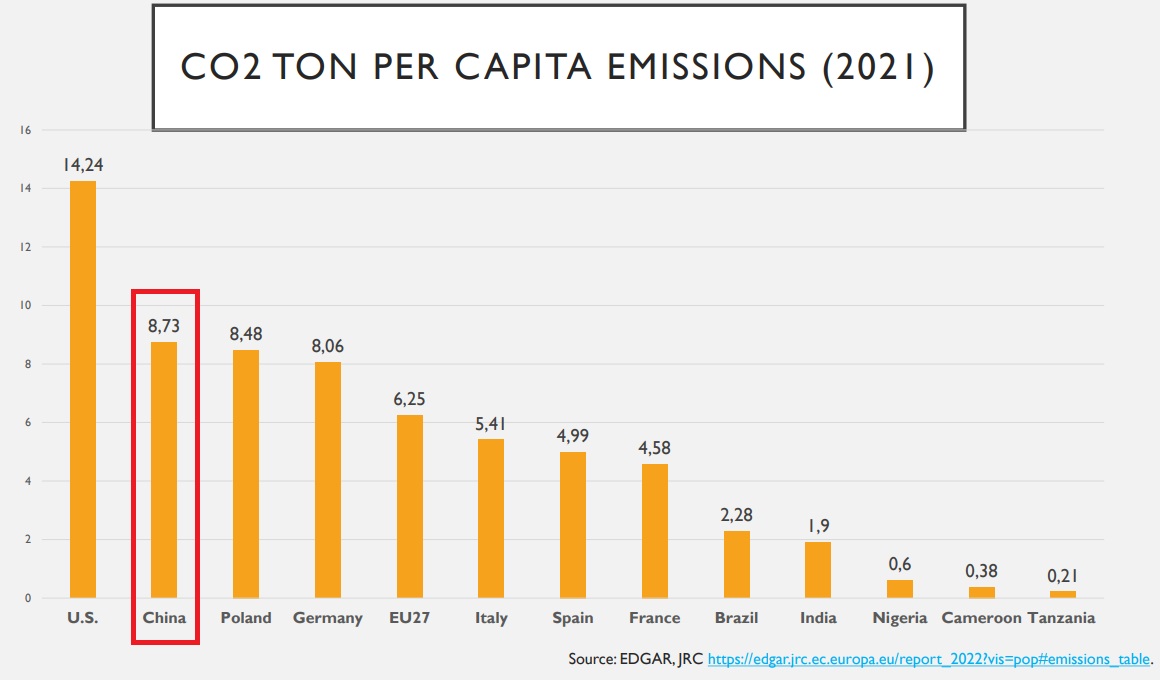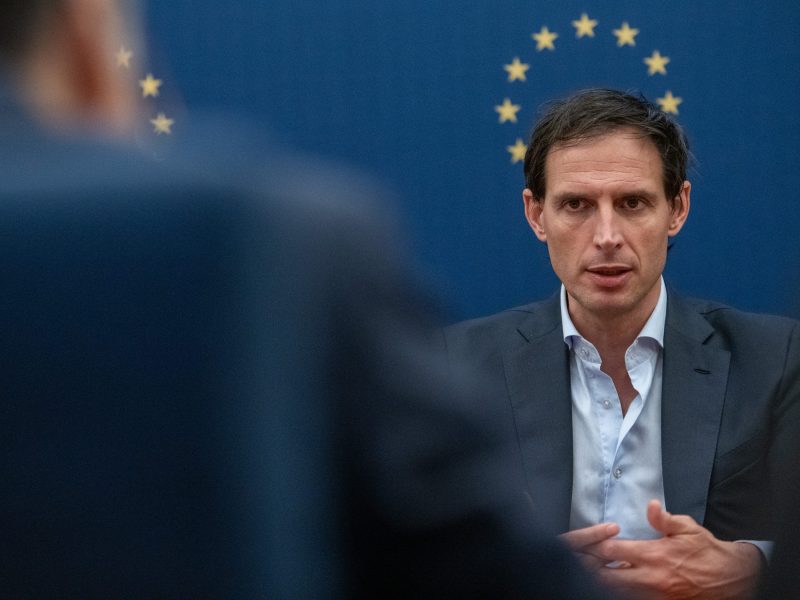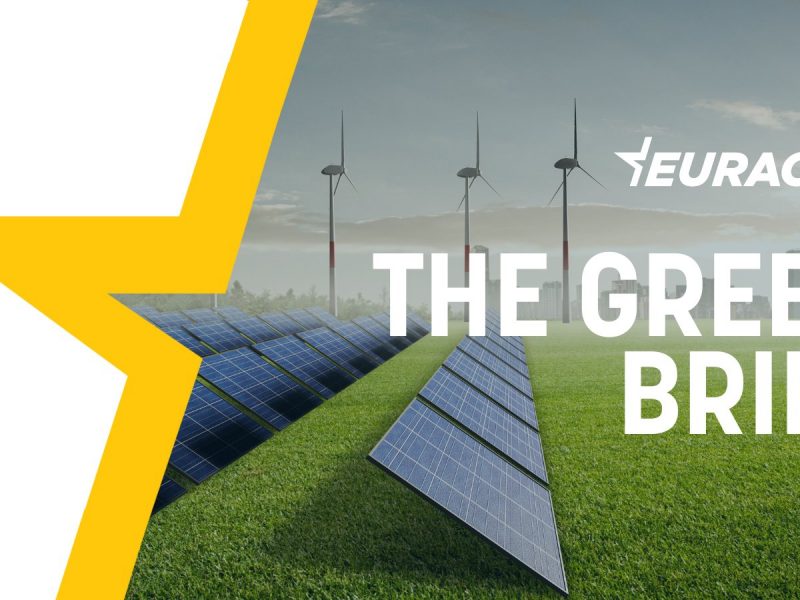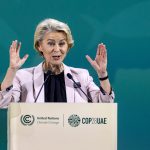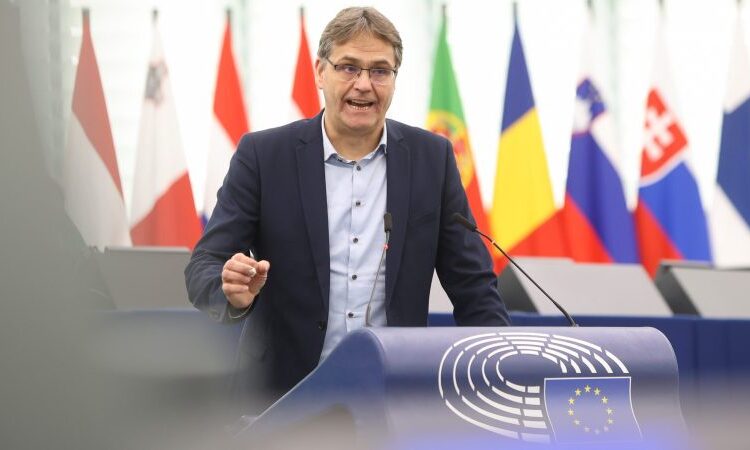
The head of the European Parliament’s delegation at the COP28 climate summit took aim at China ahead of his trip to Dubai, saying Beijing must stop portraying itself as a developing country and contribute to climate finance like “a superpower” or else assume responsibility for the talks’ failure.
Peter Liese, a German Christian Democrat, will be heading a delegation of 15 European Parliament lawmakers who will fly to Dubai on 8-12 December to attend the COP28 summit.
And he is on a mission: exposing the truth about China’s real contribution to the global climate crisis.
Most in Europe today are familiar with the fact that China is the world’s biggest emitter of greenhouse gases, representing almost 30% of global emissions according to EU data – way ahead of the EU27, which stands just above 6%.
But according to the German lawmaker, the biggest misconception about China relates to its per capita emissions, which many people assume are lower than Germany’s – an argument he says is often put forward by Green politicians in his native country to push for higher climate ambition.
In reality, though, China’s per capita emissions are the second highest in the world at almost 9%, according to EU data – behind only the United States, at over 14%.
“And this is not only more than the European Union – it is even more than Poland and Germany,” Liese told journalists at an online press briefing ahead of COP28.
‘Old story’ about Annex I countries
For Liese, these statistics are like a smoking gun – and a call to action.
When the UNFCCC treaty was concluded in 1992, China was listed among so-called Non-Annex I countries, alongside other poor and developing nations in Asia and Africa.
The non-Annex I listing is important for Beijing because, in theory, it makes China eligible to receive financial resources and technology transfers from industrialised nations to help reduce emissions.
But according to Liese, UN treaties must reflect China’s new status as a “superpower”.
“They behave like a superpower and in fact, they are a superpower. How does that fit with being treated like Burkina Faso or Tanzania?” he asked.
“If this doesn’t stop, there will not be a solution [at COP28],” he warned. “That’s why one important point at this COP is to really stop this old story about Annex I countries and non-Annex I countries.”
Wopke Hoekstra, the EU’s recently appointed climate chief, did not say anything different, although he expressed it in more diplomatic terms.
Speaking in Parliament earlier this month, Hoekstra said China must make a substantial contribution to international climate finance, including the loss and damage fund for poor countries that was officially launched on Thursday.
“We cannot base this kind of funding simply on an economic division between developed and developing countries that might have made sense in 1992,” Hoekstra told Parliament on 20 November.
“I strongly believe that all who have the ability to pay should indeed do,” he said, adding that the EU will “continue to push for that” in Dubai.
China ‘not like Tanzania’
China, for its part, claims it is still a developing country and refuses to be liable for historical emissions that have caused global warming – a stance underlined by China’s ambassador to the EU, Fu Cong, in a speech at the European climate stocktake last month.
“Developed countries have better abilities and should live up to their historical responsibilities,” Fu insisted, referring to the principle of Common But Differentiated Responsibilities (CBDR) enshrined in the UN treaties.
Yet, Liese believes China can no longer hold on to this stance.
“The first point is clear communication so that everybody knows: we don’t want to treat China like Tanzania. That’s the first step.”
The second step is to find allies. And, here, Liese believes the G77 countries can help.
According to the German lawmaker, China stands out as an increasingly odd member of the G77, which brings together a disparate group of 135 countries, including poor nations like Congo and emerging economies like India.
Liese openly challenged Beijing’s place in that group, suggesting China no longer belongs to the G77 due to the size of its economy.
“Even Brazil and India have much lower emissions compared to China,” the German lawmaker remarked. “They have to understand that China is a different player than it was 30 years ago.”
EU allies: least developed countries
But for Liese, the most important is Europe’s alliance with small island states and least developed countries, which he says can be an effective lever to make Beijing budge.
“They should be our allies” and trust that Europe will stand on their side when it comes to issues like mitigation, adaptation, or loss and damage, he said.
In return, Europe’s expectation is “that they challenge the Chinese position” as a developing country and “blame China” for any failure at the COP28 talks, Liese said. “And that will work, I’m sure.”
According to Liese, the first test for Beijing will be whether it contributes to the new loss and damage fund set up on 30 November to compensate poor countries for natural disasters caused by climate change.
“It can’t be possible that any money goes to China from this fund,” the German lawmaker emphasised, saying the draft wording of the fund’s agreement makes it clear that least developed countries and small island states should be the only beneficiaries.
“And also when it comes to the contribution, there is a clear expectation in this text that China will contribute,” he said. “They may not be the first country [to contribute], but they have to,” he stressed.
[Edited by Zoran Radosavljevic]

